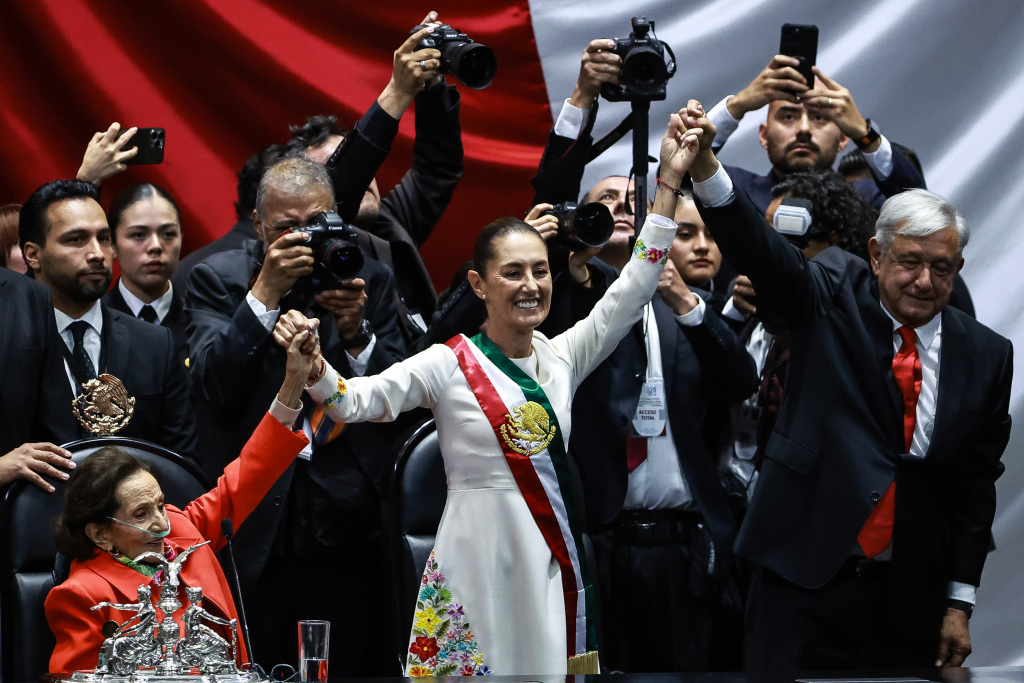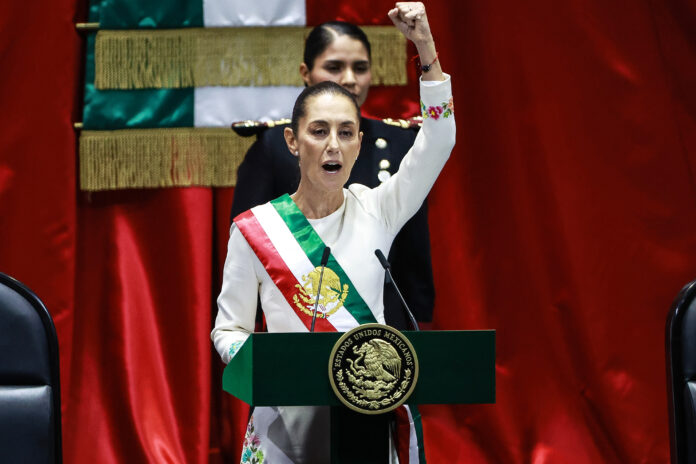Claudia Sheinbaum made history as Mexico’s first female president, taking office in a lively ceremony filled with symbolism and emotion. In her inaugural speech, Sheinbaum, a 62-year-old scientist and former mayor of Mexico City, declared it was “time for women,” signaling a new era of transformation in the country. She emphasized her commitment to strengthening women’s rights and ensuring that Mexico remains an attractive and stable destination for foreign and domestic investment.
Sheinbaum, who follows in the footsteps of former President Andrés Manuel López Obrador, reassured investors that Mexico’s central bank would remain autonomous, and she pledged that investments would be safe under her leadership. Her administration inherits significant economic challenges, including the largest budget deficit since the 1980s, a slowing economy, and concerns over a recent judicial reform that has rattled investor confidence. Despite these challenges, she remains determined to reduce the fiscal deficit and promote economic growth without imposing sweeping tax reforms, instead focusing on improving tax collection efficiency.

In addition to tackling economic issues, Sheinbaum outlined a vision for social transformation, promising to expand public healthcare, build affordable housing, and fight gender violence. She vowed to introduce a comprehensive reform package to address the high rates of femicide and gender discrimination in Mexico, an issue that has garnered international attention. While she aims to continue many of López Obrador’s social policies, she also recognizes the need for change, coining her approach as “continuity with change.”
Her leadership will be closely scrutinized, particularly in terms of her ability to manage fiscal discipline, ensure public safety, and navigate the shifting landscape of foreign investment. As Mexico’s new head of state, Sheinbaum is determined to make good on her promises, pledging to govern with dedication and use her knowledge and experience to serve the nation.


